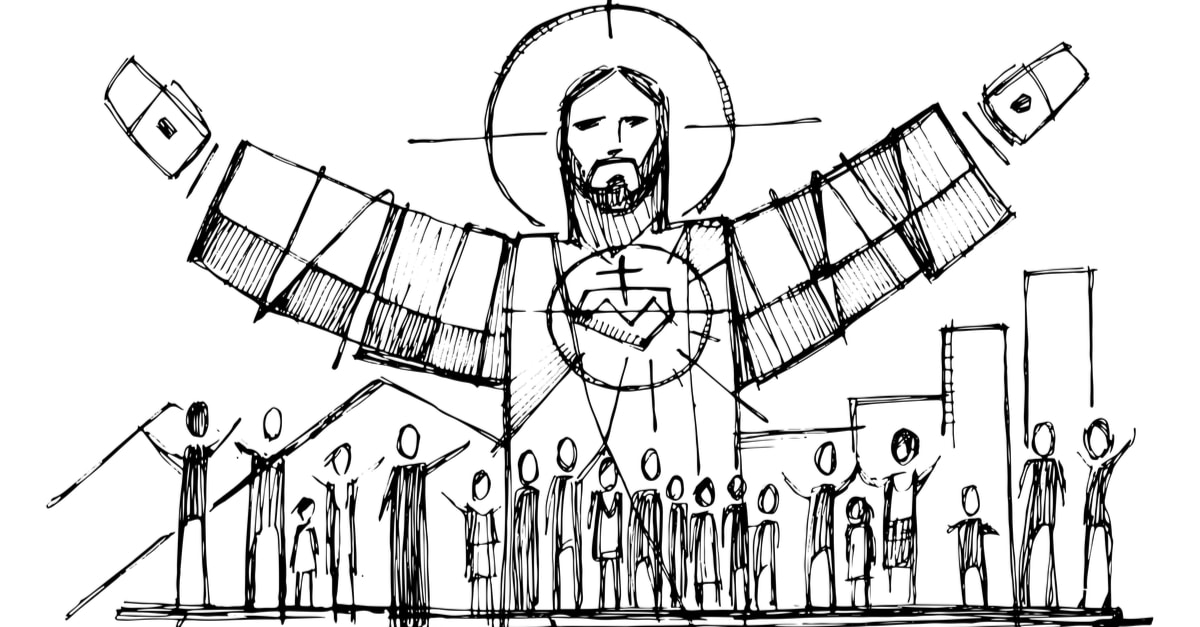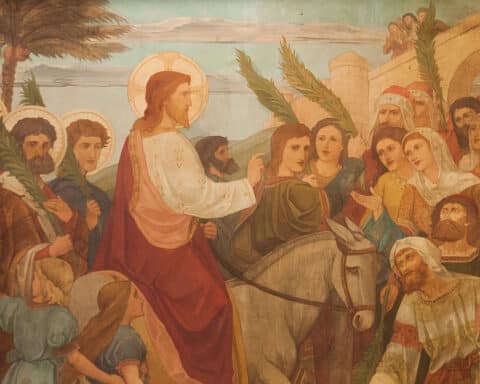
Likely, early Israel assumed that there was nothing beyond death. In the Book of Isaiah we hear that it is not Sheol, the place of the dead, where divine praise takes place. Salvation involves giving oneself over to the Law, remembering the mercies that God has accomplished in the past.
It is the living who are called to care for the widow and the orphan, to daily raise one’s voice in praise. Salvation is given in the present, where one is rewarded with a good marriage and family.
God’s mercy didn’t stop there. As Israel’s commitment to the God of Abraham, Isaac and Jacob developed, Israel came to recognize that God could even raise the dead. The vision of the dry bones in the Book of Ezekiel — read every year at the Easter Vigil — was part of this development.
The martyrdom of the seven brothers in Maccabees is connected to the developing doctrine of the resurrection of the dead. Israel is under the control of the Greeks. The Greek empire wants to get the rowdy Israelites under control. To do this, they foster idolatry in the Temple.
The seven brothers will have nothing to do with this idolatry. Nonetheless, the Greeks will make them pay. In forcing them to eat pork, the Greeks want to embarrass them. The Greeks want them to deny the power of God.
|
2 Mc 7:1-2, 9-14
Ps 17:1, 5-6, 8, 15
2 Thes 2:16-3:5
Lk 20:27-38
|
For their refusal, they are martyred. And as they suffer death, the second and fourth brothers profess their faith in God. The God whom they adore through following the Law will be faithful even unto death. Their bones shall once more receive flesh. They shall rise from the dead.
2 Maccabees was written in the first century B.C., a century or so before the birth of Jesus Christ. This profession of faith in the resurrection of the dead remained controversial in Israel in the first century. One of the religious renewal movements in Israel (the Sadducees) denied the resurrection of the dead. And they challenge Jesus on this very point.
They do so by introducing to Jesus a puzzle of sorts. There is a woman who loses husband after husband. Each time, she marries a brother. Seven times, she remarries. In the resurrection of the dead, who will she be married to?
Jesus, as he often does, refuses the terms. The resurrection of the dead is not a return to this life. The resurrection of the dead is not a benign afterlife where we’re reunited with our spouse, children and pets.
Rather, the resurrection of the dead is about divine fidelity. The God who has been faithful will be faithful even unto death. Jesus professes this not in the abstraction, but as one who will be raised from the dead through the Father’s fidelity.
As we turn our attention to the end of the liturgical year, to God’s final judgment, it is salutary to remember the radical mercy of God’s faithfulness.
Death is a real loss of communion, being cut off from all those whom we love. Our bodies, integral to divine praise, decompose.
Yet God will not allow this to happen. It is our very flesh that will be transfigured. God is not abstractly faithful to us.
We are, after all, talking about the living God who raised his beloved Son.
This, too, is our hope.
Timothy P. O’Malley, Ph.D., is the director of education at the McGrath Institute for Church Life at the University of Notre Dame.





